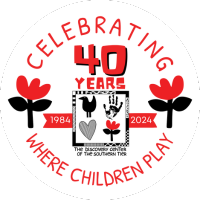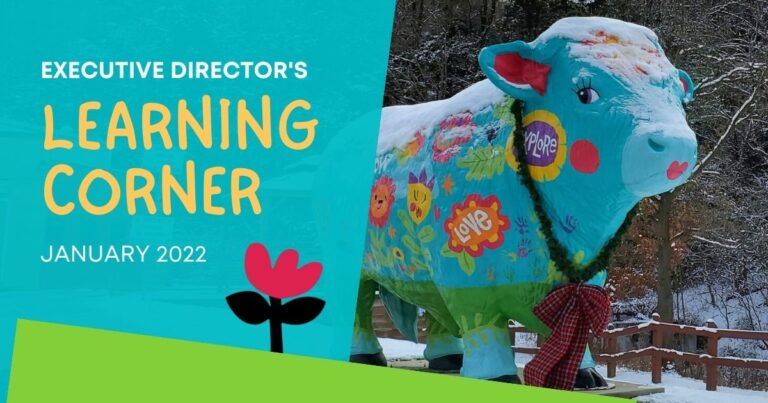Dear Discovery Center Families and Friends,
Hi! I am Jennifer Caruso, a current senior at Binghamton University. During my fall semester, I had the opportunity to intern under Jessica Locke, The Discovery Center’s Arts, Culture, and Education Coordinator. Throughout my internship, I assisted and participated in many of The Discovery Center’s programs including Toddler Time, School Programming, and Kids Club. I also attended events such as First Friday, Halloweekend, and Ho! Ho! Ho! Holidays. I learned so much during my experience as an intern and my passion for working in education grew. The Discovery Center is truly an exceptional place as is evident speaking with the staff about how much they value the learning and growth of children. I am so grateful that I had the opportunity to intern with this organization and I will value this experience for the rest of my career in education. While my internship may have come to an end, I am so grateful to be continuing at The Discovery Center working as a childcare assistant in the After School Kids Club!
Working solely in a classroom at The Discovery Center, I have begun to take more notice of the importance of peer relationships in our youth. It is not a secret that COVID-19 has impacted and continues to impact young children not only academically, but also socially. Being isolated from their peers has greatly impacted children’s socialization skills, especially with how they are able to adapt and respond to different social situations. In Spring of 2021, I worked in a kindergarten classroom and I was quickly able to note the lack of socialization in these children from not only missing half of a school year, but also from having to be socially distant from their classmates. The time that young children spend being unable to see and interact with peers has impacted children of all ages, and we realize now more than ever how important socialization skills are in other aspects of their learning and growth overall.
Peer relationships become increasingly important as children continue to grow as they want to meet people with their same interests. Friends also help children learn more about themselves and the world around them. While it is not easy to see your child possibly struggle with developing peer relationships, it is important to be aware of the nature of friendships at different ages in order to help guide and understand your child. I recently took a Child Development course and read from Spencer Rathus’ textbook Childhood & Adolescence: Voyages in Development which discussed children’s concepts of friendship at different ages.
Momentary physical interaction (Ages 3-6)
Children at these ages are egocentric, meaning that they cannot take into account the feelings or perspectives of those around them. This means they want to play with others who enjoy and play the same things they do.
One-way assistance (Ages 5-9)
While children at these ages slowly grow out of egocentric thinking, they still value their desires first, therefore they engage with friends who do what they want them to do.
Fair-weather cooperation (Ages 7-12)
It is at this age where the nature of friendship really begins to change. Children now see friendship as having reciprocity and will do things for others, but self-interest is still a rather large factor in friendships.
Intimate and mutual sharing (Ages 10-15)
At this stage is when there is a large noticeable shift with what children value in a friendship. They focus on the relationship as a whole and view their friendships as something to last over a long period of time. With a focus on mutual support, self-interest is of a lesser concern and importance.
While this can be a very stressful process for both you and your child, it is crucial to be present through this process. Talking with your child and listening to them explain their day at school can give you great insight into how their journey with peer relationships are coming along. They may open up with conflicts they are having in making friends, problems with a friend or friend group, or possibly reveal a strong value for popularity. This impacts who they choose to surround themselves with. While these issues can be complicated, they may be coming to you for help as peer relationships are still an entirely new aspect of life for them to navigate. Because they are growing and maturing, they are likely unsure what exactly is important to them in a friendship. While it is important for children to determine this for themselves, parents also have the opportunity to guide their children in the right direction in determining what is important to them in a friend.
Stepping into the new year comes the opportunity for your child to continue to grow more. Encourage the healthy relationships they are building with peers around them in school or in other extracurricular activities and be active in engaging conversations with them about their friends. The Discovery Center is a great place for your child to meet new people or to even make greater memories with those they already know.
Happy New Year and all the best,
Jennifer Caruso
Kids Club Childcare Assistant







